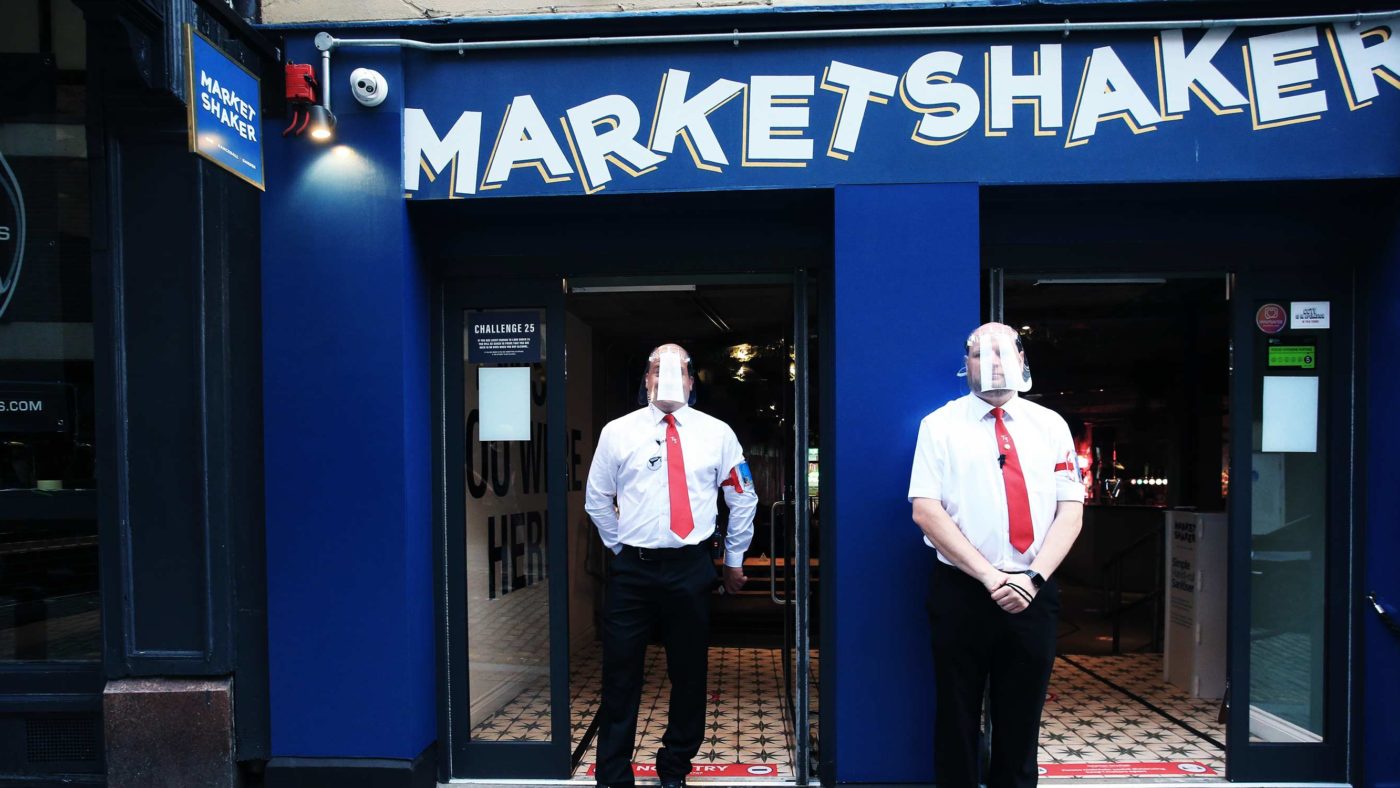Should pubs be allowed to refuse right of entry to any customer they choose? On Wednesday the Prime Minister suggested the decision would be down to individual landlords, prompting a media storm and Labour accusations of “passing the buck” on a key policy.
Boris Johnson’s position here barely qualifies as an announcement, more a muttering while he was appearing before the Commons Liaison Committee. Asked whether pubs would be able to bar unvaccinated patrons in the future, the PM said it was a possibility but “may be up to the landlord”. It very much had the ring of a government mid-manoeuvre on its latest Covid U-turn. There are broader questions over so-called ‘vaccine passports’, but it’s not clear why pubs are in the crosshairs. Could this be some kind of roundabout attempt to boost vaccine take-up among younger groups?
It’s not just the Opposition or pub landlords (who can already bar whoever they see fit) kicking up a fuss – libertarians are up in arms too. Some view the measure as tantamount to coercion; others seem to believe that freedom of association trumps almost all other considerations.
I’m not convinced this is really the hill they should choose to die on, however. If publicans were being pushed into denying entry by government guidance or soft regulation – a scheme or set of technical standards (a consultation on which is ongoing) – we might be in murkier waters. But if simply handing publicans the right to choose who they serve provokes such ire, then what reaction could we expect if they were stripped of that right? Do they realise that the alternative is lawmakers dictating who steps onto their premises?
To concede that landlords should have the freedom to deny entry to the unvaccinated is not a betrayal of the libertarian ideology, but a defence of the rights of private businesses to act as they choose. And this measure is no more coercive than landlords banning vaping or smoking in their beer gardens based on what they believe to be best for their customers and staff, or employers discriminating based on performance. It no more excludes those who choose not to take the vaccine than it does the elderly and vulnerable, who may fear that the 76% immunity provided by the AstraZeneca jab simply isn’t enough to feel safe in a pub full of those yet to be immunised. We cannot ignore that being vaccinated doesn’t fully protect against being infected or being infectious.
Given we operate under a free market system, in which producers are incentivised to cater to different needs, immunity certification would probably mean venues adopting a range of different approaches. Some would only serve the vaccinated, others might allocate time slots to different groups, and plenty would probably choose to forego the time and expense of checking their customers and let anyone in who wants a drink. Ultimately, each publican would make a judgment call based on attitudes to risk and how it might impact the bottom line. Even with an estimated 2,500 pubs lost in 2020, thousands remain, each incentivised to do what’s best according to their individual priorities.
Of course, not every unvaccinated individual is an anti-vaxx conspiracy theorist. Some are unable to receive the jab – such as those who are pregnant or have medical conditions – but it is unlikely they will be treated as second-class citizens. We can safely assume that most people would make exceptions, tolerating a little risk if a decision is out of someone’s control.
The notion of pub passports may be problematic, but its challenges are more practical than philosophical. Boris’ offhand comment didn’t address who would provide the evidence for the bouncer on the door. Would this be a government scheme, with all the potential for IT fiasco that implies? Would market solutions be credible, like voluntary age-ID schemes? If vaccines don’t work instantly, when is the passport issued? What about boosters? Isn’t having had the virus equally effective, or are we discriminating in favour of one type of antibodies over another?
Those wishing to clamp down on pub passports might gain more traction on these technical or timing grounds. It doesn’t, at this stage, look like we’re marking lines in the sand between vaccine haves and have-nots: Michael Gove yesterday suggested that venues could also allow customers who have had a recent negative Covid test or proof of antibodies against the disease. Nor is this the tip of the iceberg – where pubs go, theatres or cinemas may follow – because the same arguments apply in all sorts of settings.
Lastly, criticising the scheme on civil liberties grounds when these certifications could be our path out of this mess (or, at least, to the pub), seems a bit inconsistent. Much like when some anti-lockdown libertarians lambast face masks or condemn social distancing, or when inter-generational inequality warriors indicate they’d rather we were all trapped in this misery than let the oldies go free. Far better to embrace sensible, safe measures that can hasten the end of lockdown once and for all.
Click here to subscribe to our daily briefing – the best pieces from CapX and across the web.
CapX depends on the generosity of its readers. If you value what we do, please consider making a donation.


